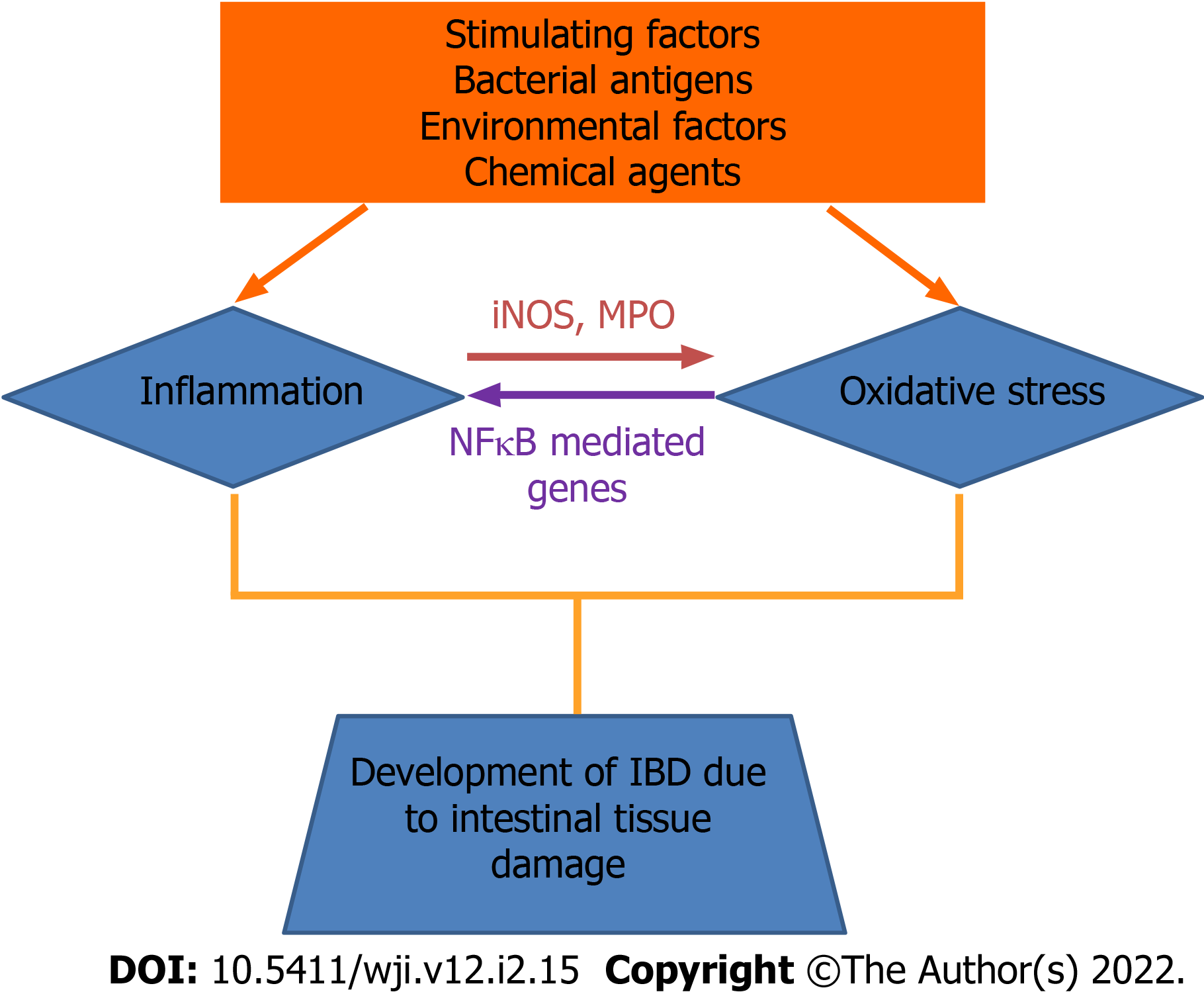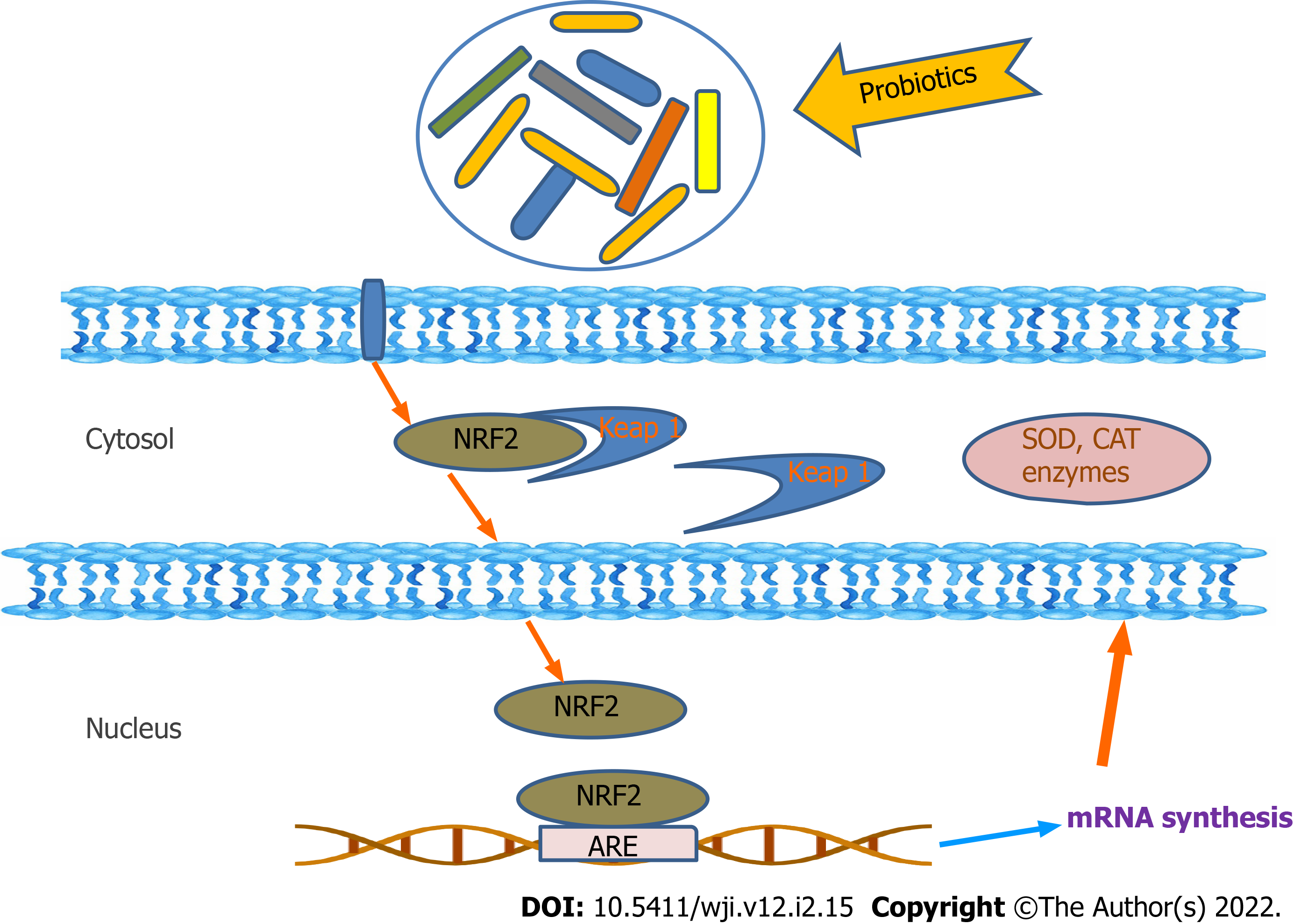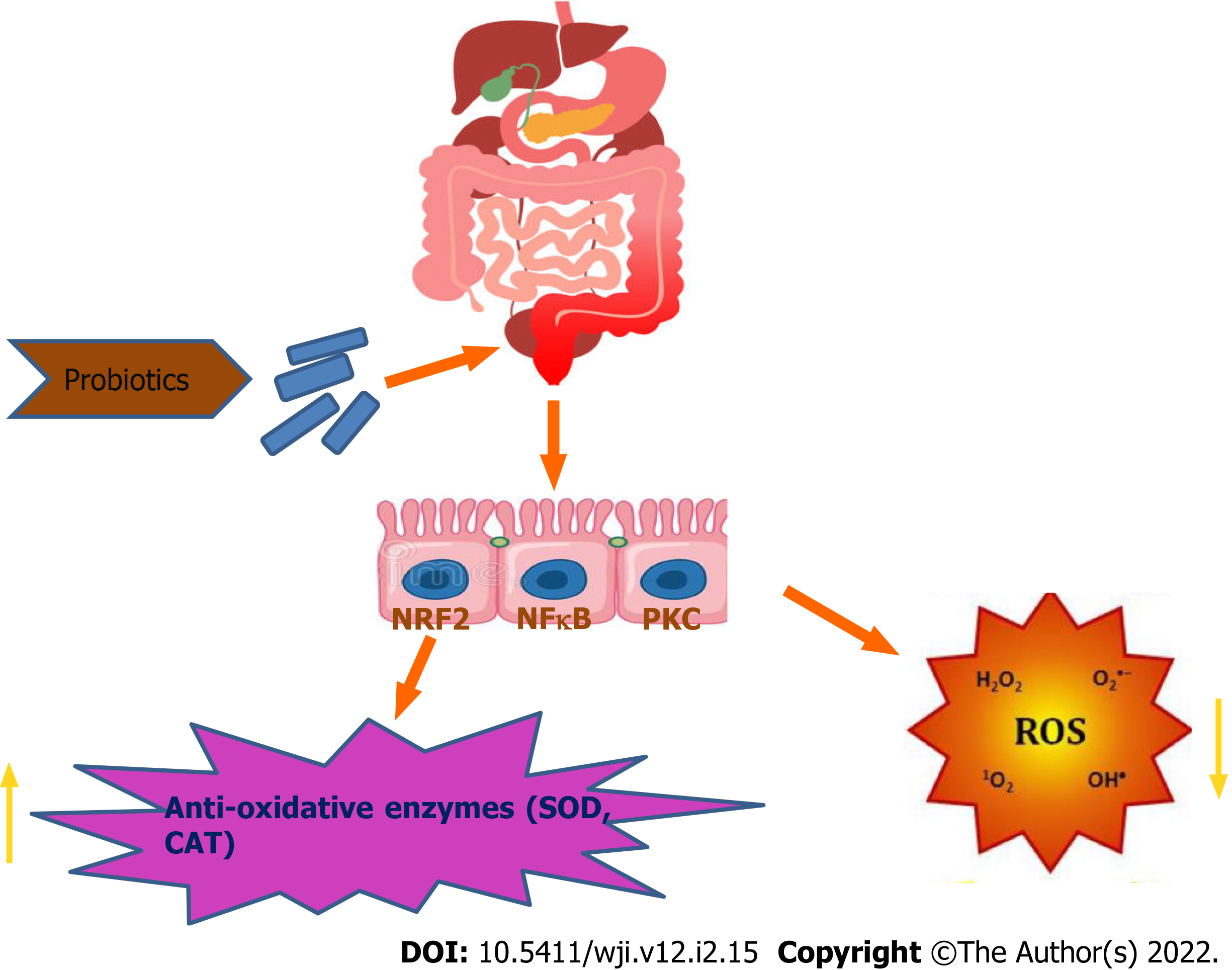Copyright
©The Author(s) 2022.
World J Immunol. Aug 24, 2022; 12(2): 15-24
Published online Aug 24, 2022. doi: 10.5411/wji.v12.i2.15
Published online Aug 24, 2022. doi: 10.5411/wji.v12.i2.15
Figure 1 Illustration of the role of oxidative stress and inflammation in the pathophysiology of inflammatory bowel diseases.
Inflammation enhances the oxidative stress by stimulating inducible nitric oxide synthase and myeloperoxidase from inflammatory cells. Simultaneously, oxidative stress involves in the secretion of the inflammatory cytokines, like nuclear factor-B and other cytokines developing IBDs. IBD: Inflammatory bowel disease; iNOS: Inducible nitric oxide synthase; MPO: Myeloperoxidase.
Figure 2 Cellular antioxidative regulations of probiotics.
Antioxidative effect of probiotic on cellular receptor and regulation of cellular cascade is portrayed. SOD: Superoxide dismutase; CAT: Catalase; ARE: Antioxidant response element.
Figure 3 Modulation of antioxidation by probiotics.
SOD: Superoxide dismutase; CAT: Catalase; ROS: Reactive oxygen species; PKC: Protein kinase C.
- Citation: Biswas S, Ray Banerjee E. Probiotic treatment of inflammatory bowel disease: Its extent and intensity. World J Immunol 2022; 12(2): 15-24
- URL: https://www.wjgnet.com/2219-2824/full/v12/i2/15.htm
- DOI: https://dx.doi.org/10.5411/wji.v12.i2.15











